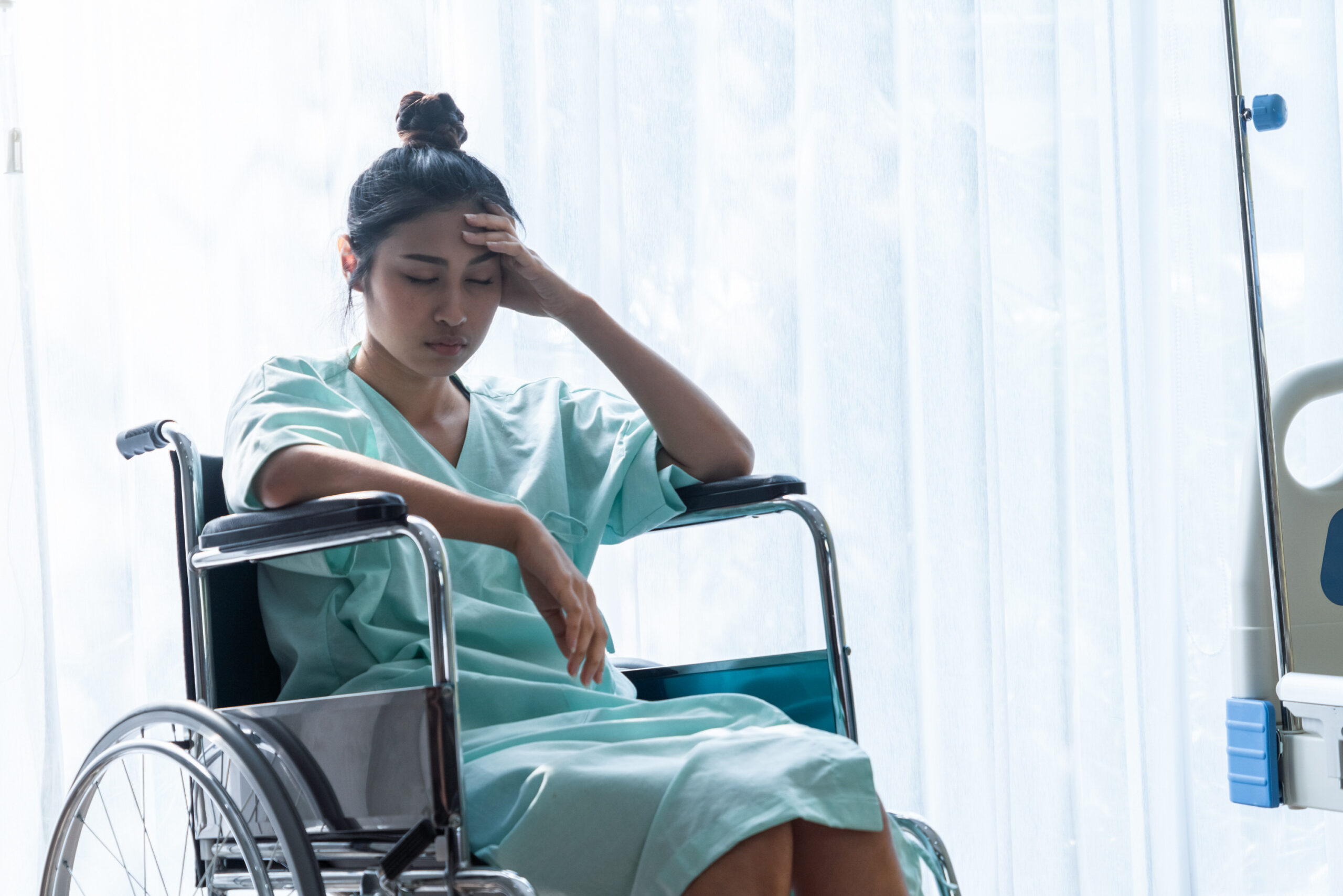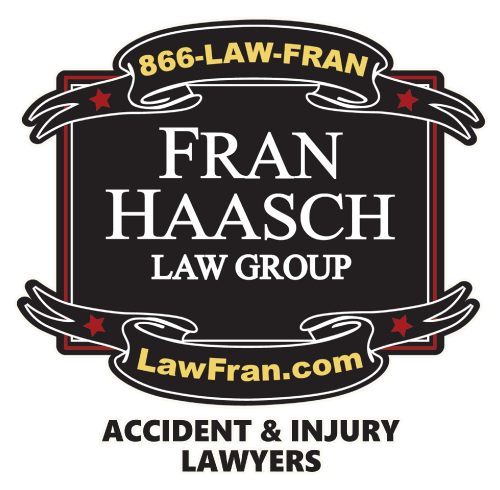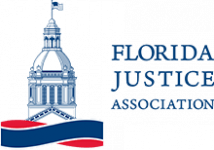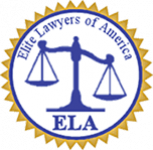Feeling Dizzy After a Car Accident
Among the many symptoms that follow a car accident, dizziness from a head injury can be a very serious injury. Experiencing dizziness can significantly impact your daily life, making it difficult to perform routine tasks and maintain your usual activities. If you have suffered from dizziness or any other injuries due to a car crash, Fran Haasch Law Group Accident & Injury Lawyers are here to help you recover financial compensation. Our dedicated team will work tirelessly to ensure you receive the support and compensation you deserve, enabling you to focus on your recovery. Contact us for a free consultation with an experienced car accident lawyer to learn more about your options.

Causes of Dizziness After a Car Accident
There are several potential causes of dizziness following a car crash.
Traumatic Brain Injury
Head injury from a concussion or mild traumatic brain injury (TBI) occurs when the brain is jolted within the skull due to the impact of the collision. This can result in symptoms such as severe dizziness, headache, confusion, and nausea.
Whiplash
Neck pain due to whiplash, another frequent injury in auto accidents, can also lead to dizziness. It happens when the neck undergoes a rapid back-and-forth movement, straining the muscles and ligaments.
Vestibular Injuries
Additionally, vestibular injuries, which involve damage to the inner ear, can impair balance and spatial orientation, causing dizziness.
Psychological Factors
Lastly, psychological factors like anxiety and stress following the trauma of a car crash can contribute to feelings of dizziness or lightheadedness.
Recognizing these causes is crucial for car accident victims seeking appropriate medical treatment and ensuring a complete recovery.
Symptoms of Dizziness After a Car Accident
Experiencing dizziness after a car accident can manifest in various ways. Common symptoms include:
- Lightheadedness: A sensation of almost fainting or feeling unsteady on your feet.
- Vertigo: A spinning or whirling sensation, as if you or your surroundings are moving when they are not.
- Balance Problems: Difficulty maintaining your balance, leading to unsteady walking or the need to hold onto objects for support.
- Disorientation: Feeling confused or having trouble focusing on tasks.
- Nausea: A queasy feeling in your stomach, which may be accompanied by vomiting.
- Blurry Vision: Difficulty seeing clearly, which can exacerbate feelings of dizziness.
- Fatigue: An overwhelming sense of tiredness that can make it difficult to stay alert.
Recognizing these symptoms early on is essential for receiving accurate diagnoses and effective treatment to aid in your recovery. If you experience any of these symptoms after a car accident, seek medical attention immediately.

What is Vertigo?
Vertigo is a specific type of dizziness characterized by a sensation that you or your surroundings are spinning or moving when there is no actual movement. After a car accident, vertigo can be particularly distressing and debilitating. It often stems from damage to the vestibular system in the inner ear, which plays a crucial role in maintaining balance and spatial orientation. The sudden impact of a collision can displace tiny crystals in the inner ear, resulting in a condition known as benign paroxysmal positional vertigo (BPPV).
Additionally, head injuries such as concussions can also contribute to vertigo by disrupting the normal functioning of the brain that processes balance signals. Symptoms of vertigo can include spinning sensations, balance problems, nausea, vomiting, and even headaches. Understanding and diagnosing vertigo is vital for developing an effective treatment plan, which may include physical therapy, medications, or other interventions to help restore balance and reduce symptoms.
Vertigo Symptoms
Recognizing the symptoms of vertigo is vital for seeking timely medical intervention and relief. Common manifestations of vertigo include:
- Spinning Sensation: A feeling that you or your surroundings are spinning or moving, even when you are still.
- Nausea and Vomiting: Frequent feelings of sickness in the stomach, which can lead to vomiting.
- Loss of Balance: Difficulty maintaining your equilibrium, often resulting in falls or unsteady movements.
- Ear-related Symptoms: The presence of ringing in the ears (tinnitus) or hearing loss.
- Headaches: Persistent or severe headaches, which can exacerbate the disorienting sensations.
- Sweating: Excessive sweating often accompanies the dizzy spells.
- Jerky Eye Movements: Uncontrolled eye movements known as nystagmus, which can contribute to the feeling of vertigo.
Identifying these symptoms early on is crucial for diagnosing vertigo accurately and implementing appropriate treatment strategies. If you experience any of these symptoms following a car accident, consult a healthcare professional promptly for evaluation and management.
Benign Paroxysmal Positional Vertigo (BPPV)
Benign paroxysmal positional vertigo (BPPV) is one of the most common causes of vertigo, especially following a car accident. BPPV occurs when tiny calcium carbonate crystals, known as otoconia, become dislodged from their normal location in the inner ear and move into one of the semicircular canals. These crystals interfere with the normal movement of fluid in the canals, leading to the brain receiving incorrect signals about your head’s position, resulting in dizziness and the characteristic spinning sensation of vertigo.
BPPV episodes are typically brief, lasting less than a minute, and are often triggered by specific changes in head position, such as looking up, bending over, or turning over in bed. Despite its sudden onset and distressing symptoms, BPPV is generally considered benign, meaning it is not life-threatening and can often be effectively treated.
Post-Traumatic Meniere’s Disease
Post-traumatic Meniere’s disease is a condition that can develop after a car accident, leading to episodes of dizziness and vertigo. This disorder affects the inner ear and is characterized by a combination of vertigo, tinnitus (ringing in the ears), hearing loss, and a feeling of fullness in the ear. The trauma from a car accident can disrupt the structures within the ear, causing an imbalance in the fluids that are crucial for hearing and balance.
Treatment for Dizziness or Vertigo After an Auto Accident
Treatment plans for dizziness or vertigo depend significantly on the underlying cause of the symptoms.
Benign Paroxysmal Positional Vertigo
BPPV can often be effectively managed with specific repositioning exercises. The Epley maneuver, a series of head movements performed to shift the dislodged crystals back to their original position in the inner ear, is a common and successful treatment for BPPV.
Vestibular Vertigo
For those experiencing vertigo due to inner ear inflammation, known as vestibular neuritis or labyrinthitis, treatment may involve anti-inflammatory medications such as corticosteroids to reduce swelling. Additionally, antiviral or antibacterial medications might be prescribed if an infection is suspected to be the cause.
Concussion
For cases where vertigo stems from a concussion or other head injuries, treatment often includes a multidisciplinary approach involving physical therapy, vestibular rehabilitation, and medications to alleviate symptoms. In rare cases, surgical intervention might be necessary to correct abnormalities in the inner ear structure.
It is essential for individuals experiencing persistent or severe dizziness or vertigo to seek medical evaluation from a doctor immediately to determine the cause and receive tailored treatment. Early diagnosis and intervention are crucial for managing symptoms effectively and improving overall quality of life.
Car Accident Injuries That Can Cause Vertigo
Head injuries, particularly those sustained in car accidents, can significantly impact the structures within the brain and inner ear responsible for maintaining balance, leading to vertigo. Some of the common injuries include:
- Concussions: A concussion occurs when a blow to the head causes the brain to move rapidly back and forth within the skull, leading to temporary disruption of normal brain function. This head trauma can affect the vestibular system, which processes sensory information related to motion and balance, resulting in dizziness and vertigo.
- Skull Fracture: When the skull bones are fractured, they can damage the inner ear structures or the vestibular nerve, leading to balance problems and the sensation of spinning.
- Whiplash Injury: Neck injury, where the neck is forcefully whipped back and forth, can also result in vertigo. The rapid movement can cause subtle brain injuries or affect the cervical spine’s proprioceptors, which are essential for coordinating balance and spatial orientation.
- Traumatic Brain Injury: traumatic brain injuries (TBIs) of varying severities can lead to vertigo by disrupting the neural pathways that integrate balance information from the eyes, inner ears, and proprioceptive sensors in the body.
- Subdural Hematoma: This condition arises when blood accumulates between the dura mater (the outer protective covering of the brain) and the brain’s surface. The bleeding is often caused by the tearing of veins that bridge the dura and the brain due to a sudden impact or jolt to the head.

What to Do If You Are Feeling Dizzy After a Car Accident
If you are experiencing dizziness or vertigo following an automobile accident, it is crucial to take immediate steps to address the symptoms and prevent further complications. Here are some recommended actions:
- Seek Immediate Medical Attention: Contact a healthcare professional as soon as possible for immediate symptoms. Quick emergency medical care can help identify underlying injuries such as concussions, inner ear damage, or other conditions that might be causing your symptoms.
- Avoid Sudden Movements: To reduce the risk of falls and further injury, try to move slowly and avoid sudden head movements or positions that can trigger dizziness or vertigo.
- Rest and Hydrate: Ensure you get plenty of rest, as sleep can aid in the recovery process. Staying hydrated is equally important since dehydration can exacerbate symptoms of dizziness.
- Follow Medical Advice: Adhere to the treatment plan prescribed by your healthcare provider. This may include medications, vestibular rehabilitation exercises, or specific maneuvers like the Epley maneuver for BPPV.
- Contact Your Insurance Company: Initiate the auto accident claim process.
- Monitor Symptoms: Keep a log of your symptoms, noting the frequency, duration, and triggers of vertigo or dizziness episodes. This information can be valuable for your healthcare provider to tailor your treatment plan effectively.
- Limit Stress and Anxiety: Stress and anxiety can worsen vertigo symptoms. Practising relaxation techniques such as deep breathing, meditation, or gentle yoga can help manage anxiety.
- Avoid Driving: Until your symptoms are well-controlled, abstain from driving or operating heavy machinery, as vertigo and dizziness can impair your ability to perform these tasks safely.
By taking these measures, you can better manage your symptoms and reduce the risk of further complications. Always consult a healthcare professional for a thorough evaluation and appropriate treatment plan specific to your condition.
The Fran Haasch Law Group Accident & Injury Lawyers: Committed to Car Accident Victims
The Fran Haasch Law Group Accident & Injury Lawyers stands as a pillar of support for individuals who have sustained injuries in car accidents. With a deep understanding of the complexities surrounding accident-related injuries, our team is dedicated to delivering compassionate, comprehensive legal assistance. We are committed to helping car accident victims navigate the often overwhelming process of seeking compensation for their injuries. Whether dealing with medical bills, lost wages, or the emotional toll of the accident, we strive to ensure our clients receive the justice and financial relief they deserve. Our experienced lawyers tirelessly advocate for the rights of every client, understanding that each case is unique and requires a tailored approach. At The Fran Haasch Law Group Accident & Injury Lawyers, we are not just your legal representatives; we are your partners in recovery. Contact our offices today for a free consultation.












